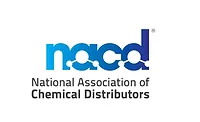NACD Comments on Proposed Hours of Service Rule
ARLINGTON, VA – The National Association of Chemical Distributors (NACD) has submitted comments to the U.S. Department of Transportation’s Federal Motor Carrier Safety Administration (FMCSA) regarding the agency’s proposed rule on Hours of Service (HOS) of Drivers. NACD commends FMCSA for proposing commonsense changes to make the HOS rules more flexible while maintaining a high level of safety.
In the association’s comments, NACD Vice President of Regulatory Affairs Jennifer Gibson wrote, “NACD appreciates FMCSA’s proposed revisions to the HOS regulations and invitation for comment from the businesses and individuals impacted by these rules. If ultimately adopted, these changes will provide more flexibility for drivers and businesses and will enhance safety by decreasing stress on drivers.”
Regarding specific provisions of the proposal, she stated, “NACD strongly supports FMSCA’s proposed expansion of the short-haul exemption. Most NACD members make truck deliveries within limited geographic areas, either from one or a few regional facilities for smaller companies or from individual local branches for larger companies. The proposed air-mile radius increase from 100 to 150 miles would extend the exception to these companies, resulting in substantial time and resource savings.”
Gibson continued, “NACD strongly supports FMCSA’s proposed changes to the 30-minute rest break requirement, particularly allowing it to be satisfied while on duty, not driving. Drivers making regular stops for delivery or pick-up during the day have ample opportunity to get out of their trucks and refresh themselves. Most drivers for NACD member companies make multiple stops each day and spend substantial time waiting in parking lots and loading docks prior to, during or post loading/unloading operations. Allowing the rest-break requirement to be satisfied during these periods would increase efficiencies and reduce stress for drivers.”
She concluded, “NACD appreciates FMCSA’s HOS reform proposals and thanks the agency for the opportunity to comment. The proposed short-haul exception expansion and rest break proposals would certainly provide more flexibility and result in tangible health, safety and quality of life benefits for drivers and efficiency, cost and safety benefits for employers.”
Looking for a reprint of this article?
From high-res PDFs to custom plaques, order your copy today!




-(1).webp?height=200&t=1668413861&width=200)

